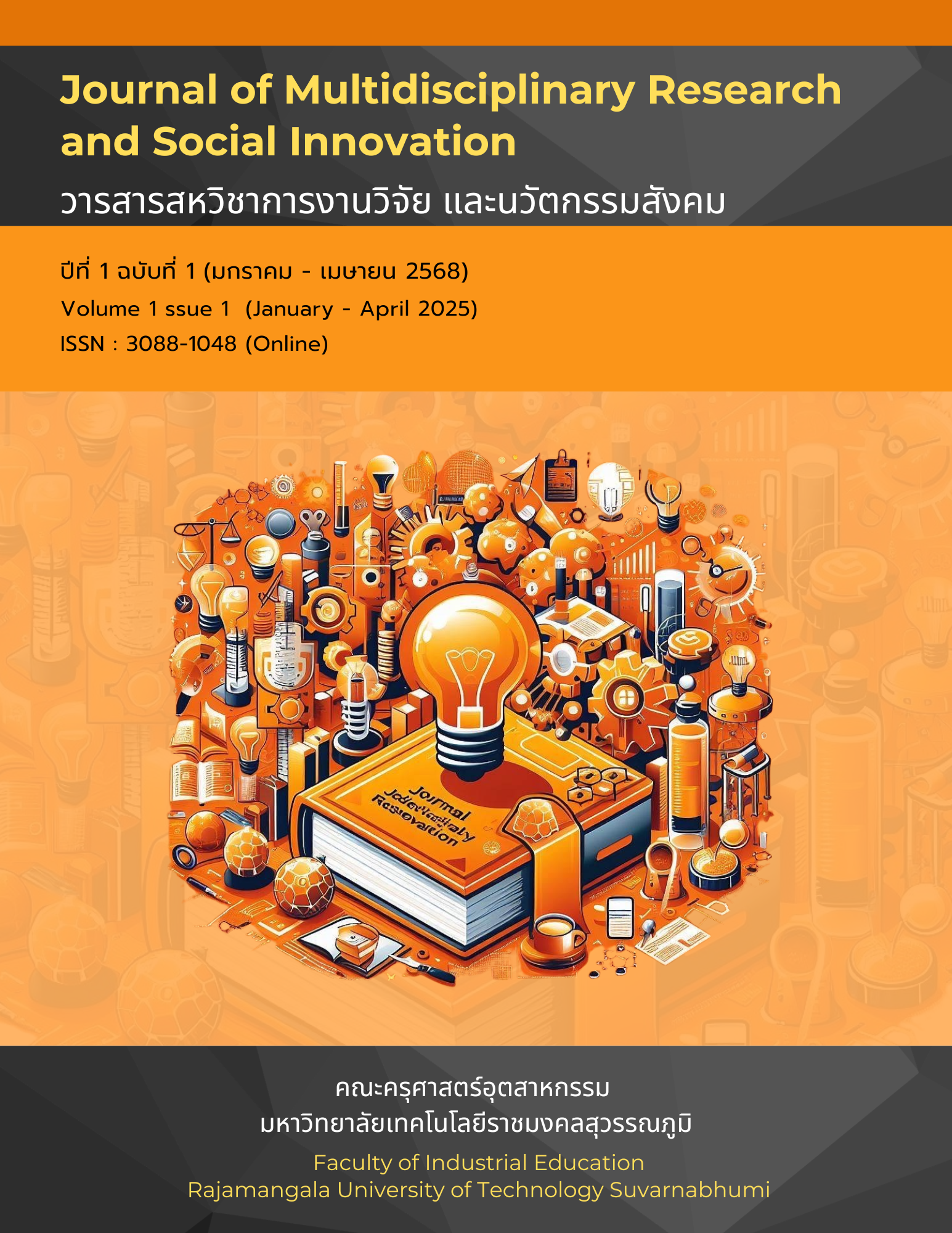Work-based Learning Management in the Context of the Automotive and Parts Industry Group
Main Article Content
Abstract
This article presents work-based learning management in the context of the automotive and parts industry, which is one of the S-curve industries that plays a vital role in the Thai economy but still faces a shortage of highly skilled labor. Towards the connection of work-based learning (WBL) as an important approach to develop personnel with knowledge and skills that meet the needs of the industry, WBL combines both theoretical and practical learning through actual work in the workplace, helping learners develop professional skills, think analytically, solve problems, and create innovations, focusing on learners creating knowledge from real situations. Developing and promoting WBL in the automotive and parts industry will help enhance the potential of personnel, increase the competitiveness of the industry, and be a guideline that workplaces and educational institutions can apply to develop human resources that respond to changes in technology and the future labor market
Article Details
References
กระทรวงอุตสาหกรรม. (2554). แผนแม่บทการพัฒนาอุตสาหกรรมไทย พ.ศ.2555-2574. กรุงเทพมหานคร: กระทรวงอุตสาหกรรม
กุลธิดา มีสมบูรณ์. (2561). การจัดการเรียนรู้โดยใช้งานเป็นฐาน เพื่อส่งเสริมความสามารถในการจัดประสบการณ์การเรียนรู้ของนักศึกษาสาขาการศึกษาปฐมวัย. วารสารมังรายสาร, 6(2), 53-64.
ทรรศนะ บุญขวัญ. (2562). อนาคตภาพสมรรถนะของช่างฝีมือแรงงานระดับกลาง กลุ่มอุตสาหกรรมยานยนต์ไฟฟ้า. วารสารวิชาการสถาบันวิทยาการจัดการแห่งแปซิฟิค, 5(1), 11-22.
ปาณิศา สุภารัตน์. (2561). ผลกระทบของยานยนต์ไฟฟ้าต่ออุตสาหกรรมชิ้นส่วนยานยนต์ไทย. การค้นคว้าอิสระหลักสูตรเศรษฐศาสตรมหาบัณฑิต มหาวิทยาลัยธรรมศาสตร์
อาชนัน เกาะไพบูลย์ และเพ็ชรธรินทร์ วงศ์เจริญ. (2561). โครงการย่อยที่ 5 ประสบการณ์การพัฒนาของอุตสาหกรรมชิ้นส่วนยานยนต์. คณะเศรษฐศาสตร์ มหาวิทยาลัยธรรมศาสตร์, สำนักงานกองทุนสนับสนุนการวิจัย.
สมนึก เอื้อจิระพงษ์พันธ์. (2558). Work-Based Learning ทฤษฎีบวกการปฏิบัติงานจริงสร้างศักยภาพการทำงานของนักศึกษาการจัดการ มหาวิทยาลัยวลัยลักษณ์ เข้าถึงได้จาก https://issuu.com/prwalailak/docs/1158
สำนักงานพัฒนาวิทยาศาสตร์และเทคโนโลยีแห่งชาติ. (2557). คลังข้อมูลอุตสาหกรรมชิ้นส่วนยานยนต์. เข้าถึง ได้จาก http://www.nstd.or.th/industry/autoprts-industry.
Atkinson, G. (2016). Work-based learning and work-integrated learning: fostering engagement with employers. National Centre for Vocational Education Research, Published by NCVER, PO Box 8288, Station Arcade, Adelaide SA5000, Australia.
Chantragatrawi, C., & Prasongporn, P. (2021). Strengthening the learners’ proficiency through work-based education model. Panyapiwat Journal,13(1), 308-317.
Suthamanon, L. (2017). Panyapiwat Institute of Manage and Model of Work-based Education. Office of the Higher Education Commission. Retrieved July 19, 2020, from http://www.mua.go.th/users/he-commission/t-visit%20project/tvisit%20book%202/22-g2--15-1.pdf15 - 1.pdf
The Secretariat of the Council of Education. (2011). Revised national education plan (2009-2016), Ministry of Education. Bangkok: Chulalongkorn University Printing House.


